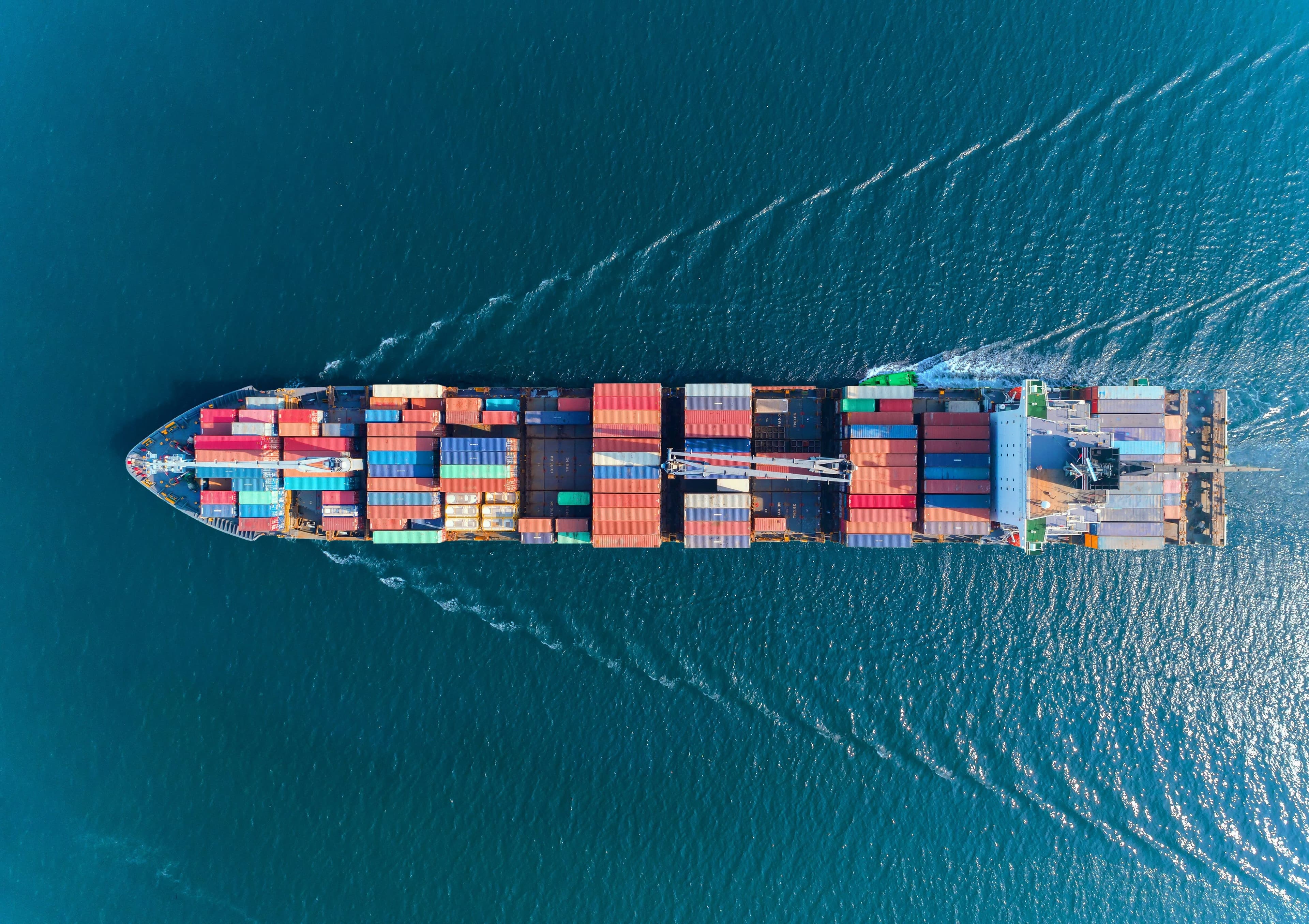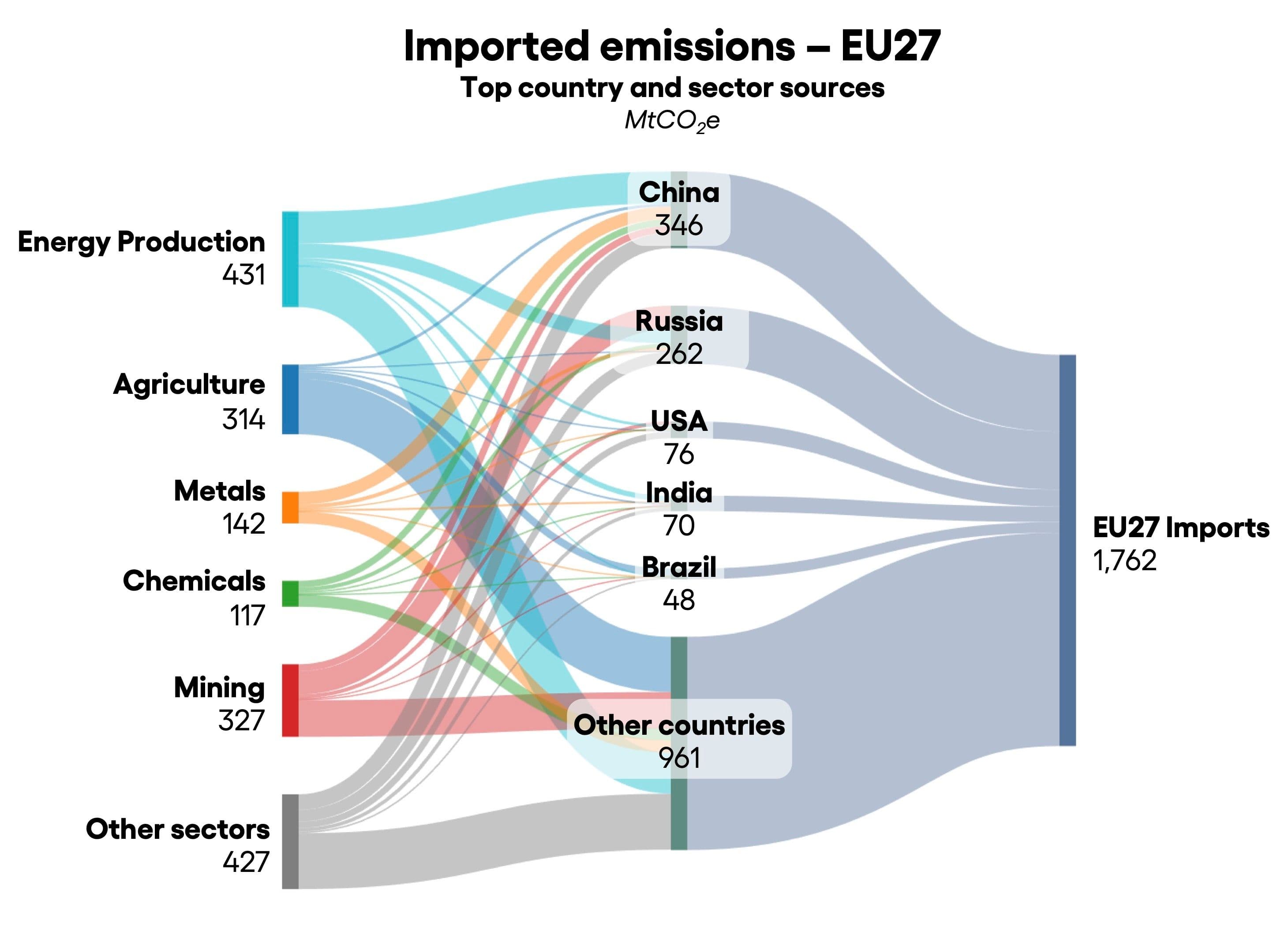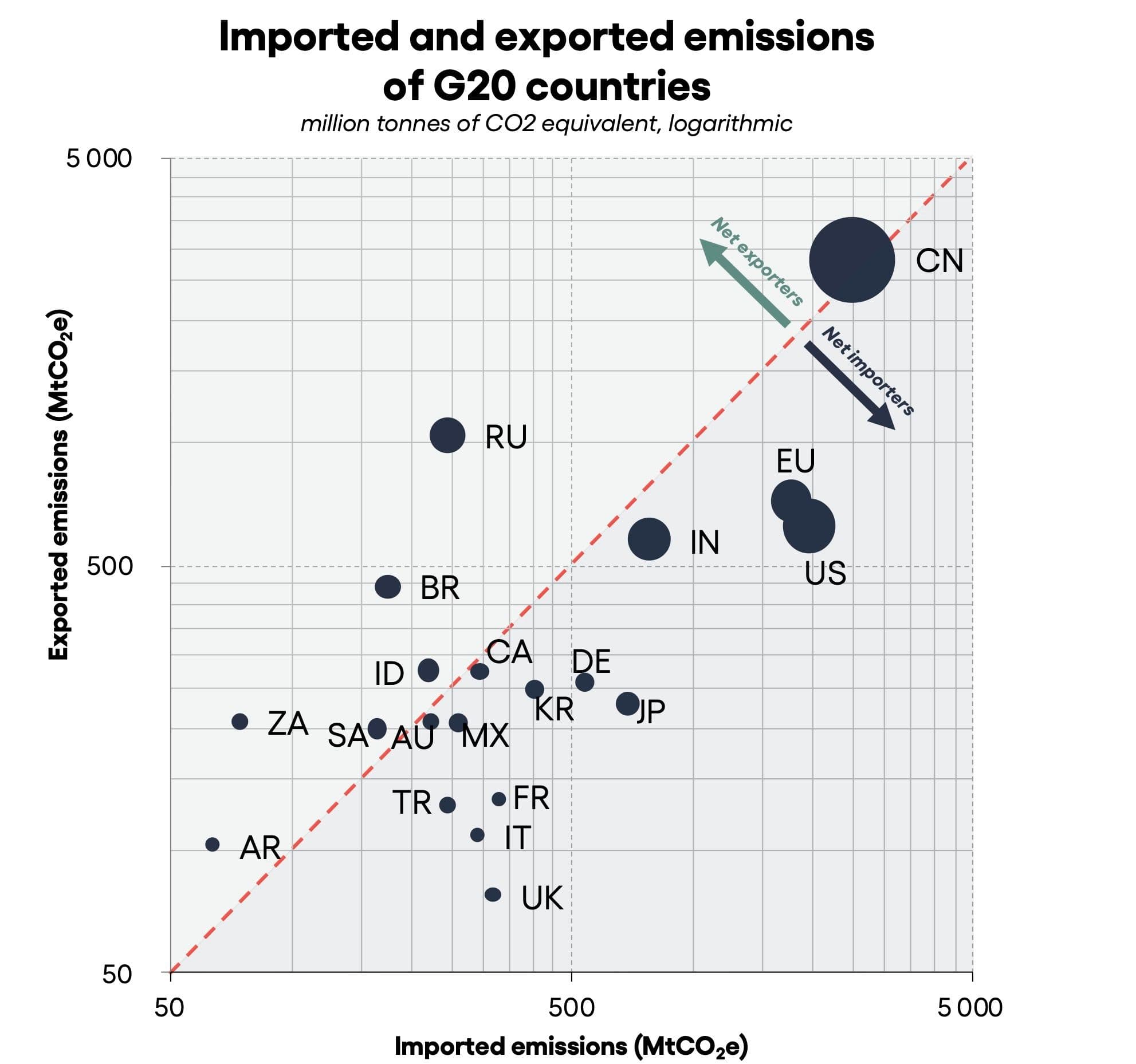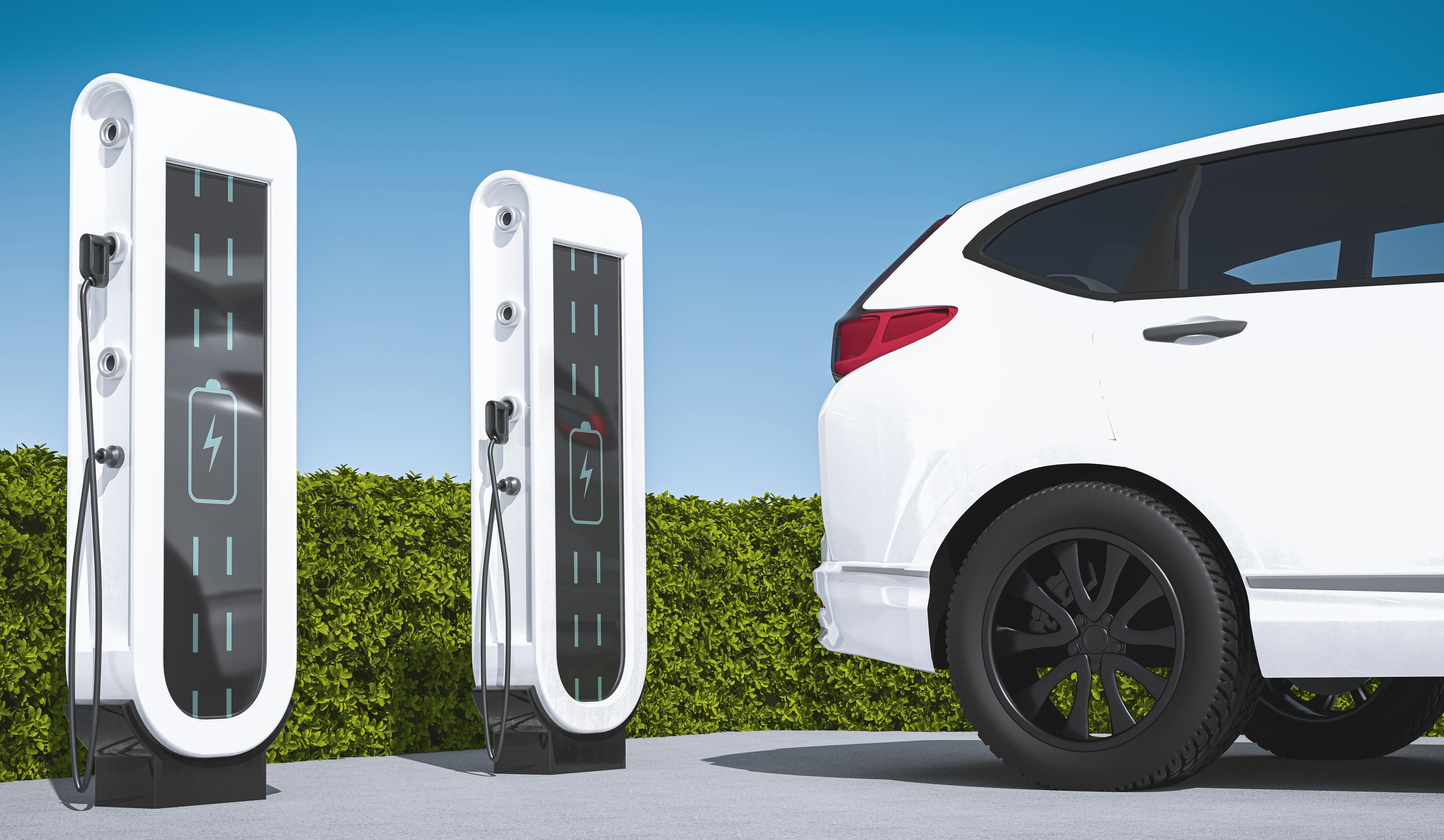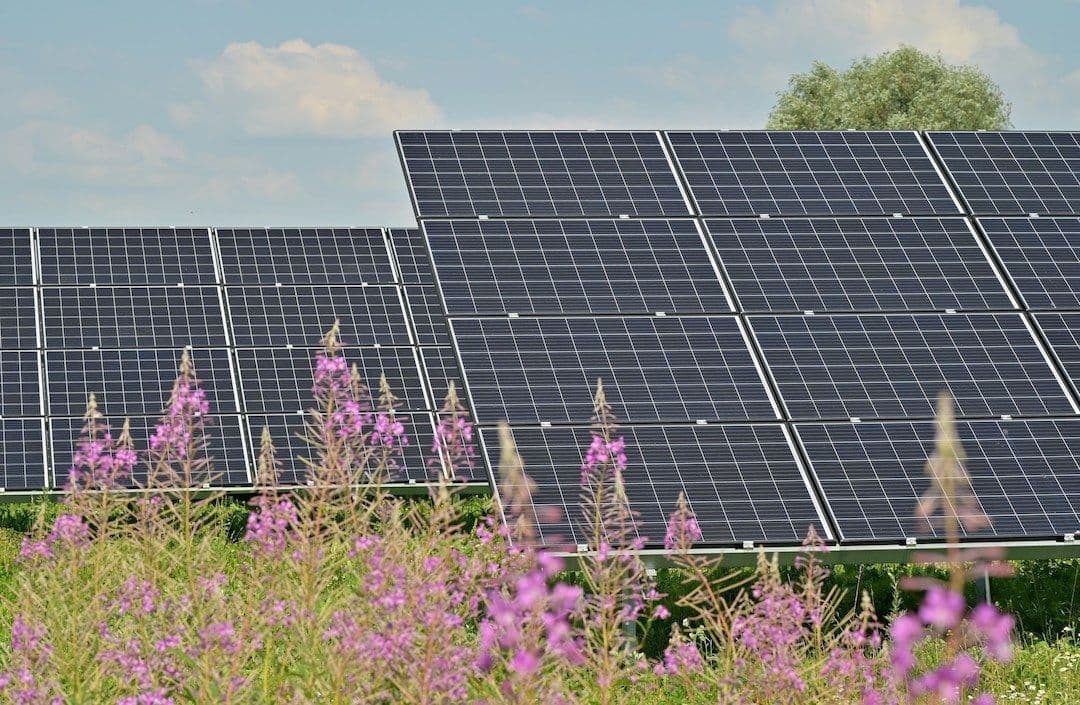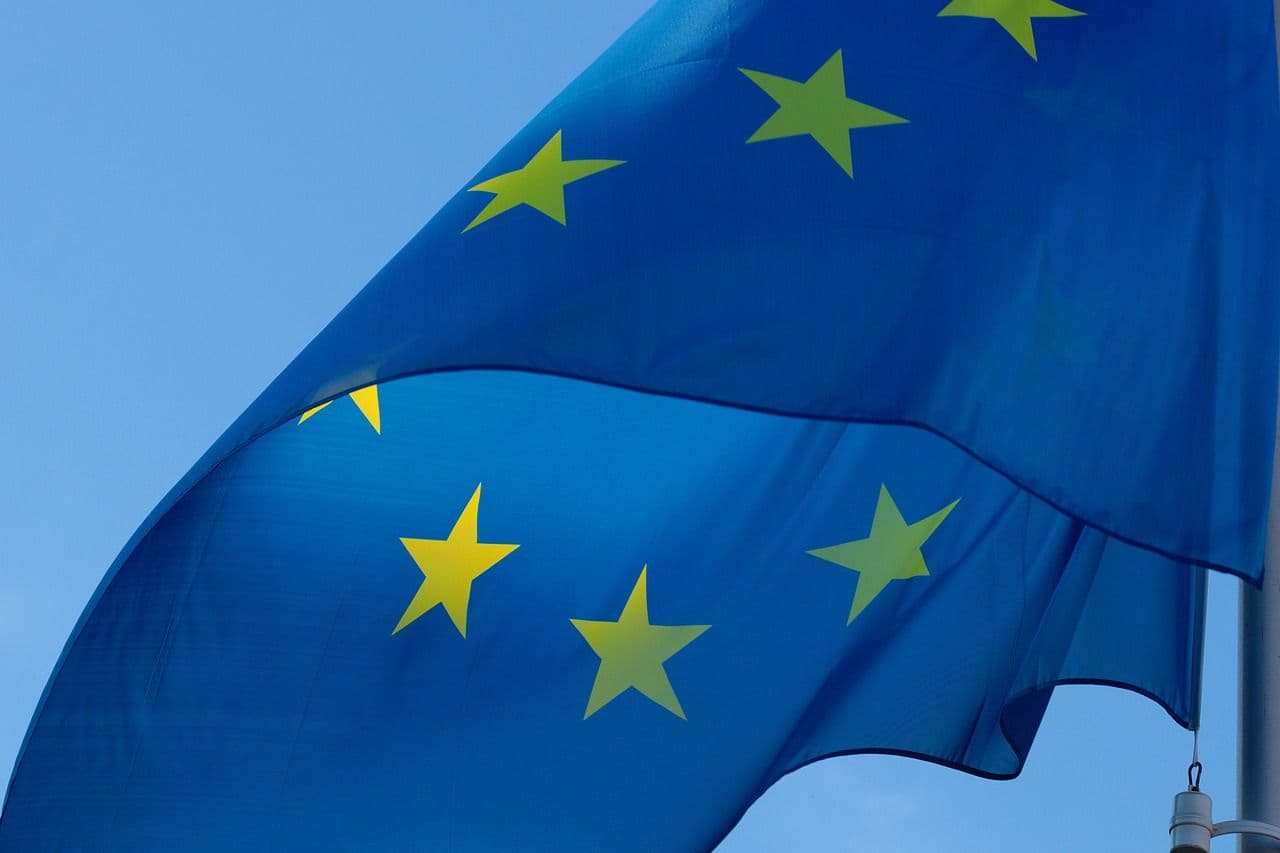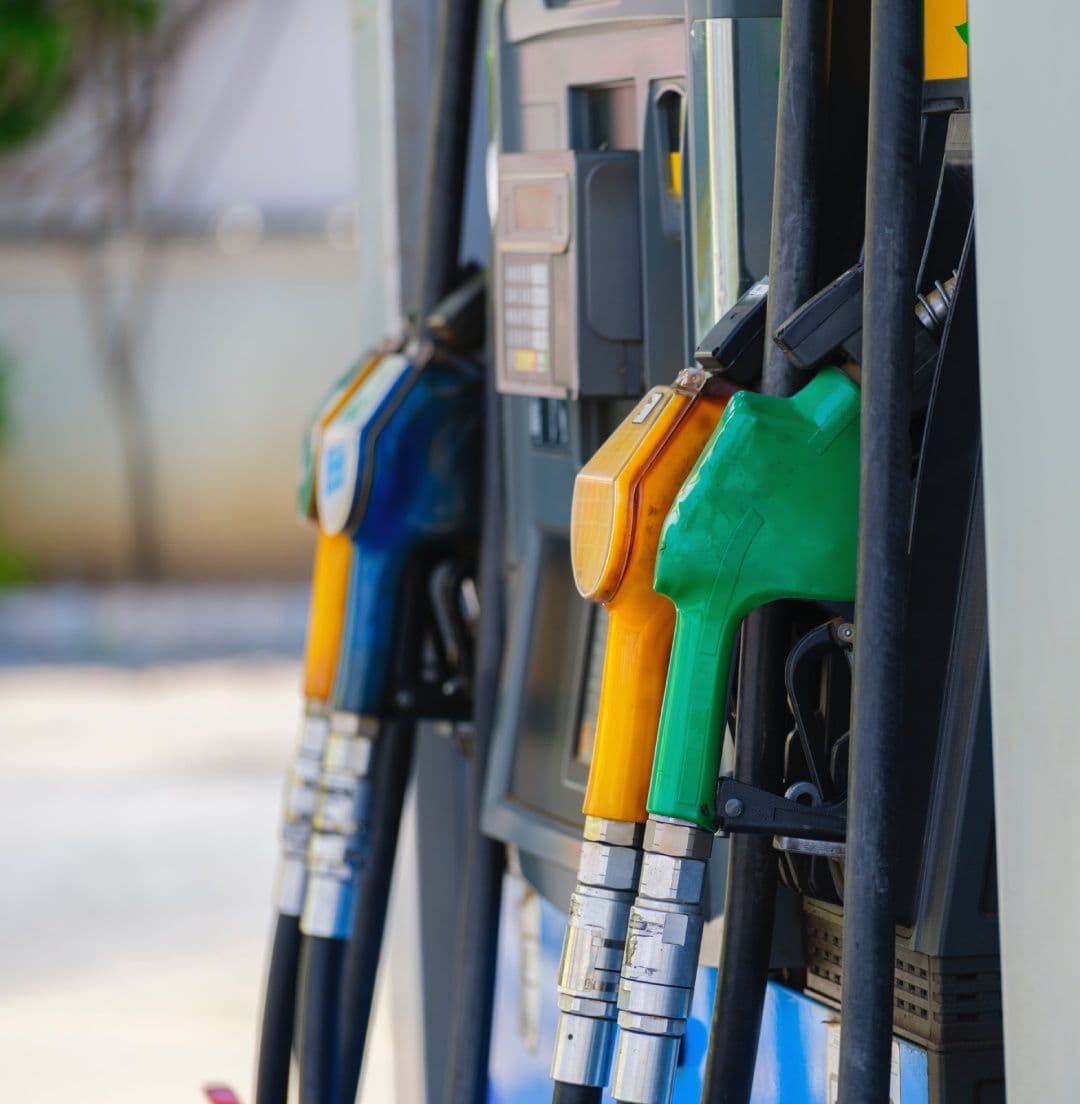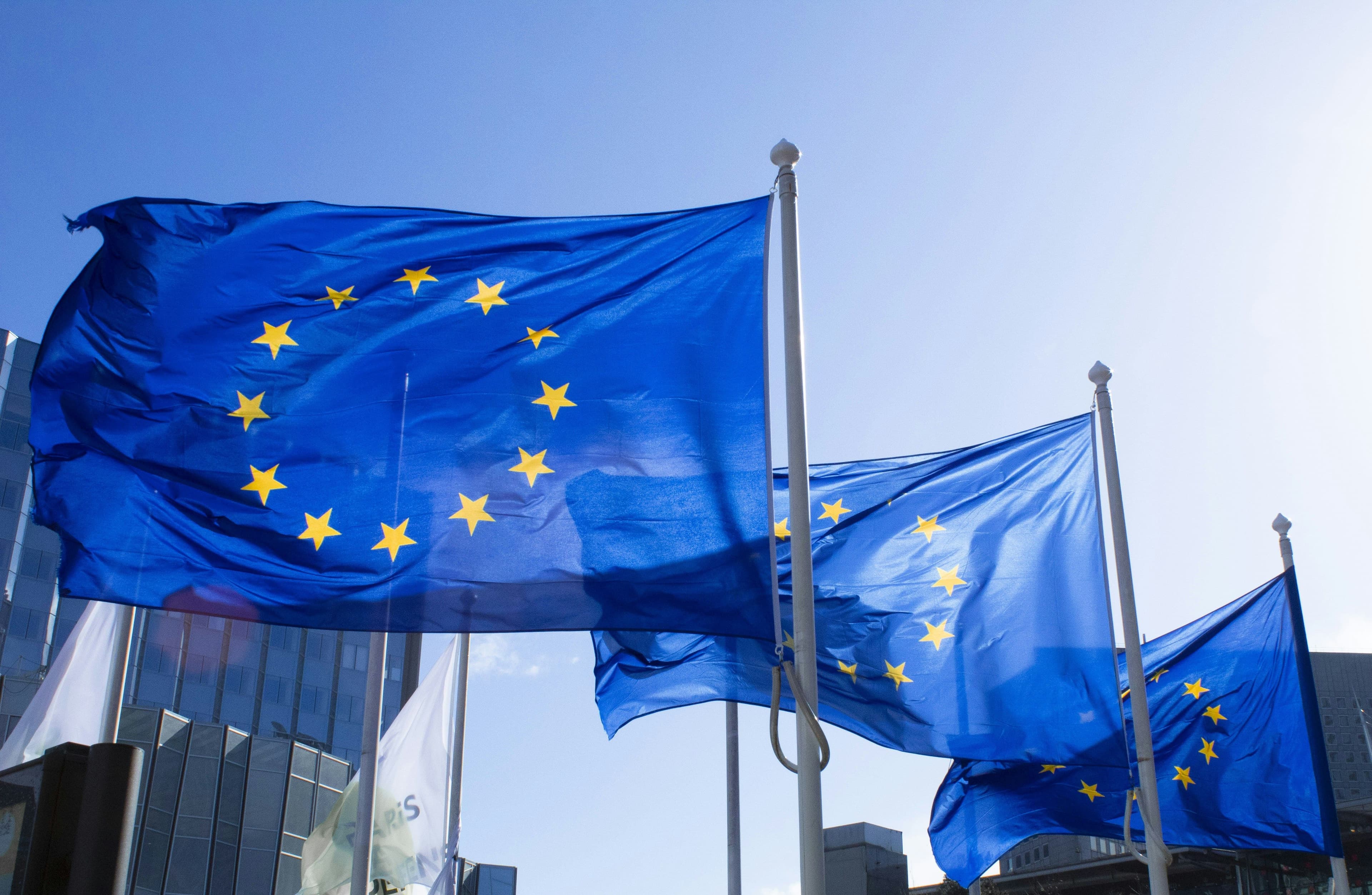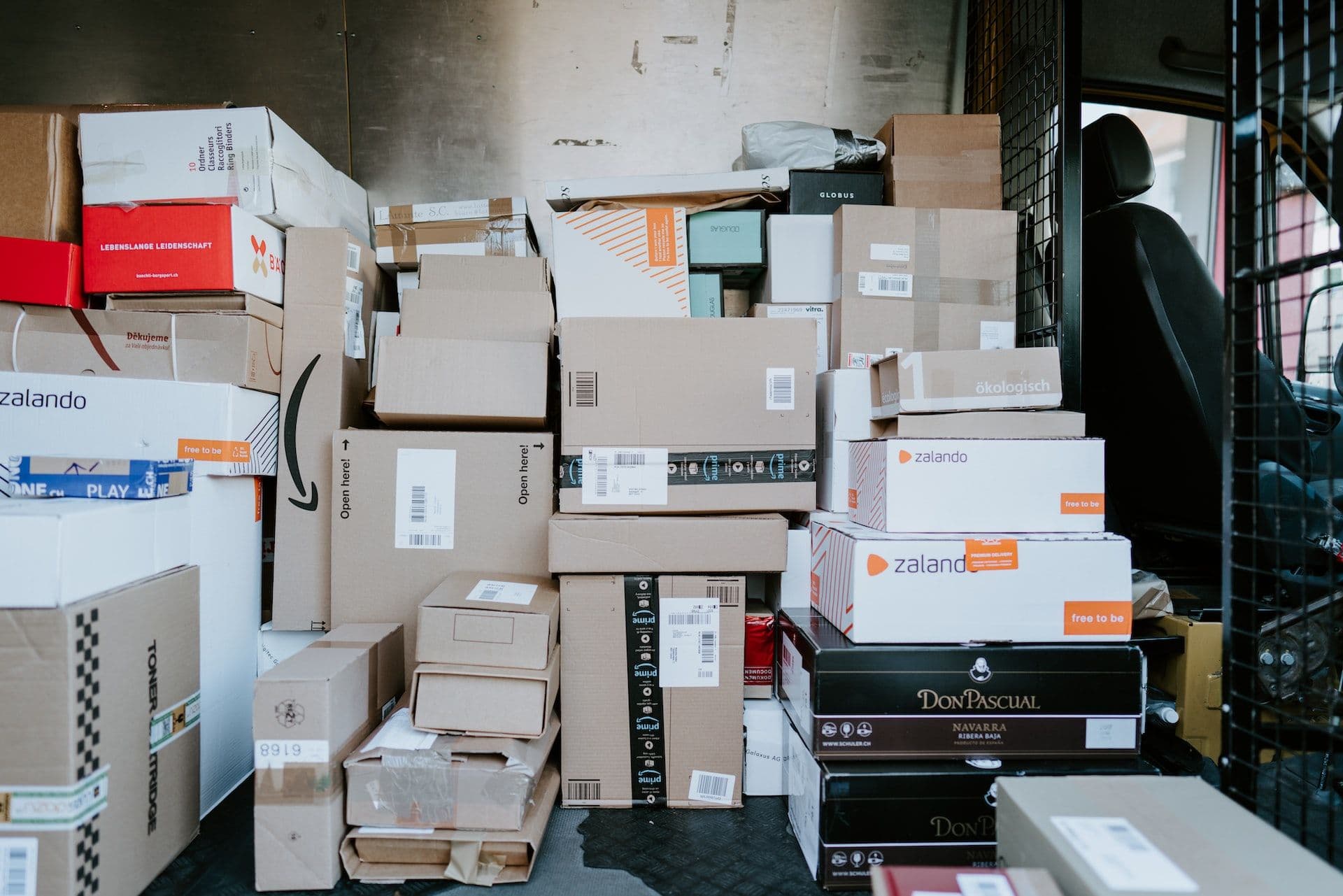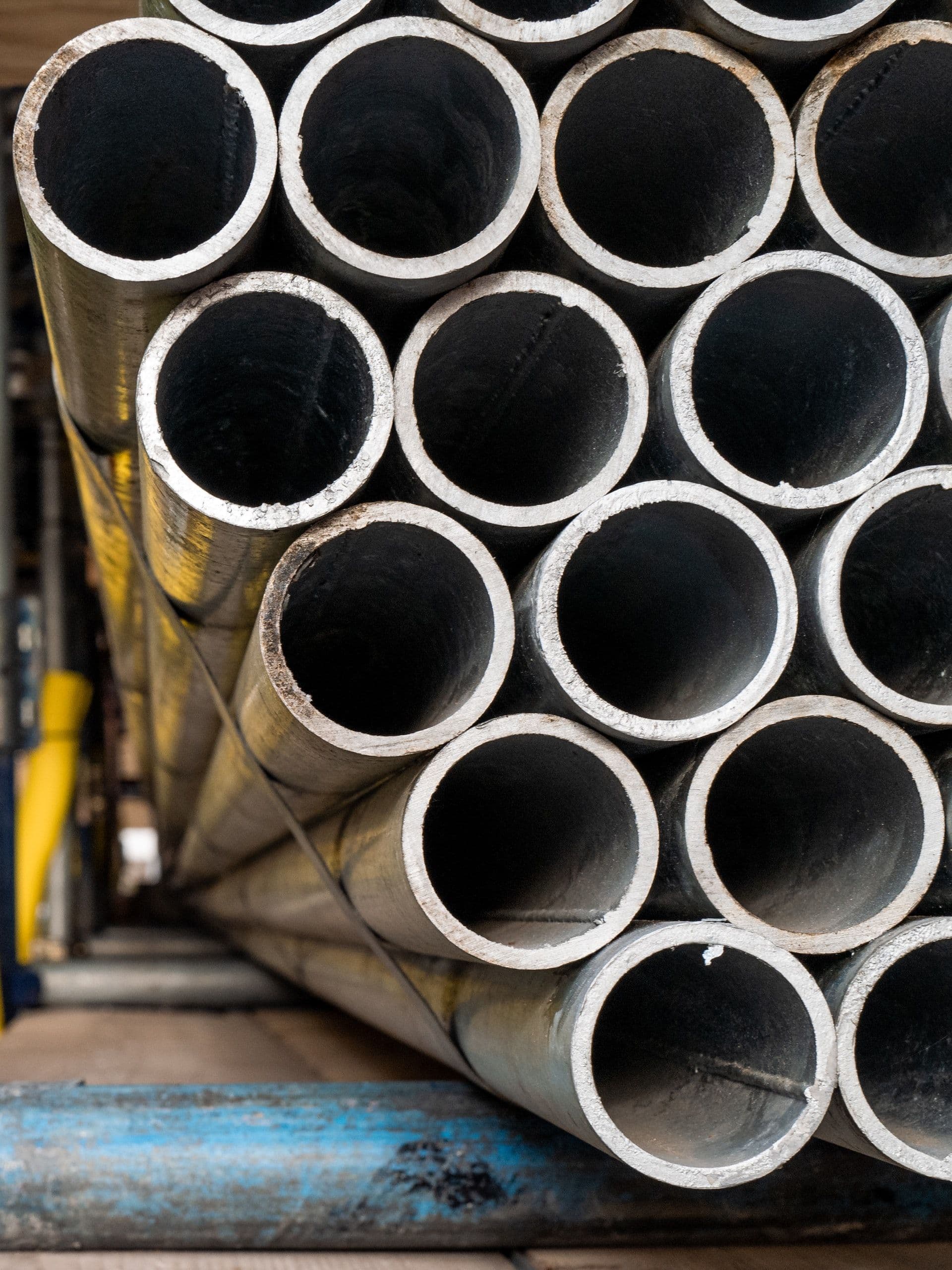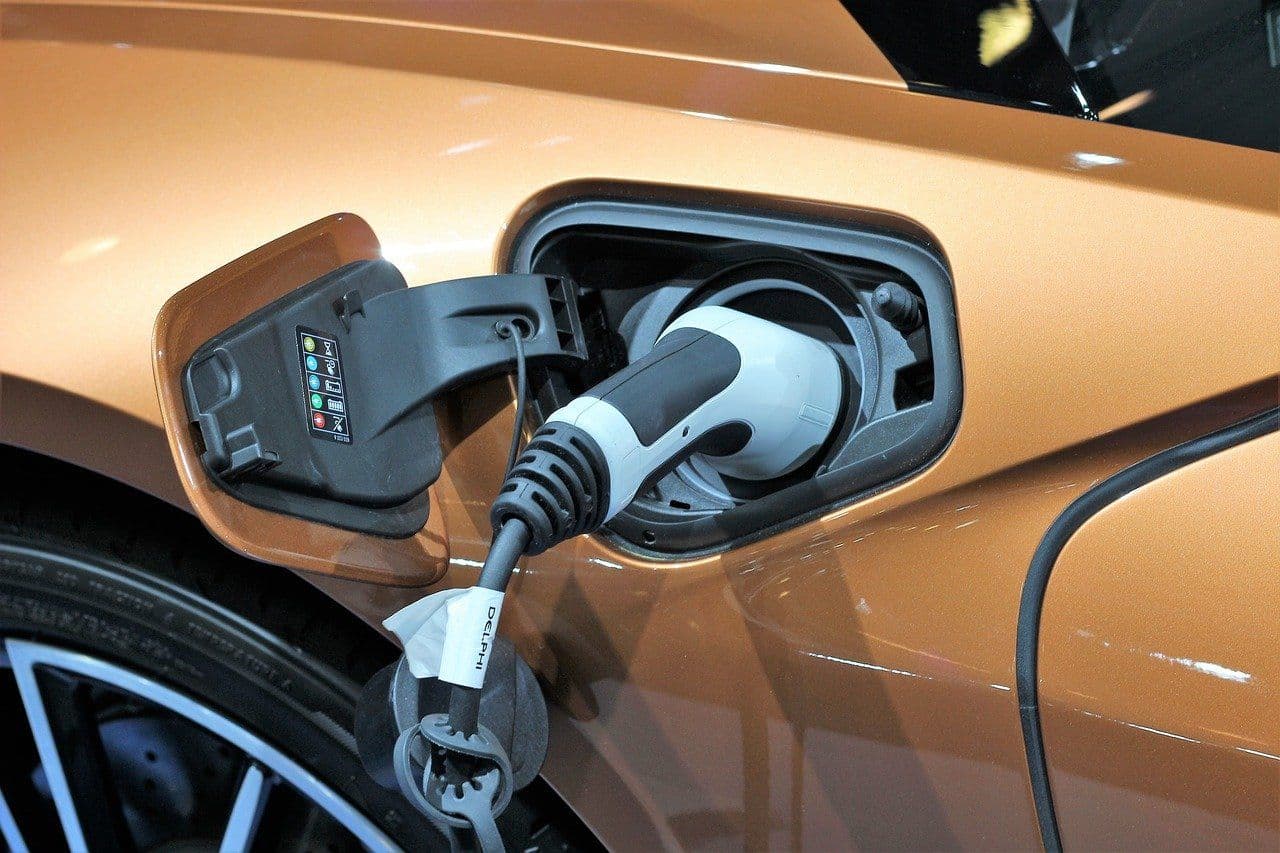Imported emissions: From co-dependence to co-operative action
A collective effort of G20 countries to reduce emissions “embodied” in trade can accelerate the decarbonisation of the global economy
Imported Emissions: From Co-Dependence to Co-operative Action
A collective effort of G20 countries to reduce emissions “embodied” in trade can accelerate the decarbonisation of the global economy
This report was made in collaboration with the European Climate Foundation.
The greenhouse gas emissions from the production of goods and commodities traded internationally have been growing for some time and accounted for approximately a quarter of global emissions, nearing 12.8 billion tonnes of CO2e in 2021. As countries and regions advance their decarbonisation efforts at different paces, changing their relative competitive positions, it is increasingly likely that one country’s reductions could lead to an increase in its trade partners’ emissions via carbon leakage. Behind the immediate economic gain for partners is also an added challenge on their way to reaching their climate mitigation objectives. This risk notwithstanding, embodied emissions are an established fact at the intersection of our globalised economies and global climate goal.
With 81% of all imported emissions in the world, G20 countries’ imports represent the lion’s share of embodied emissions, through trade amongst themselves and with the rest of the world. Imports tend to be an important part of all G20 countries’ carbon footprints, even for the net exporters of GHG emissions.
Trade partners could recognise their co-dependence (my imported consumption = your emissions) to develop, where possible, a cooperative agenda for sector-specific decarbonisation. The data on imported emissions show the pre-eminence of heavy materials and chemicals, agriculture, forestry and fishing, mining and quarrying in trade’s carbon footprint (including the indirect emissions from electricity and heat going in their production, and from international transport).
While so-called unilateral trade measures, e.g. new market access rules to avoid carbon leakage, may be necessary to maintain mitigation efforts, cooperation on mitigation can further accelerate on both sides of trade flows. There are international efforts underway on heavy industry (e.g. the Climate Club, Leadership Group for Industry Transition, the Industrial Decarbonisation Initiative), but there will be value in the G20 boosting the policy profile of this issue. This could start with the acknowledgment of countries’ carbon mitigation co-dependence, more precise data on embodied carbon, and a possible consolidation of international initiatives around a cooperative mitigation goal. Countries may also wish to set voluntary and transparent objectives for the reduction of their imported emissions.
Countries may also wish to tackle this question bilaterally, based on the most significant sectoral contributions to their traded emissions. This report provides robust data as a first step in this direction.
